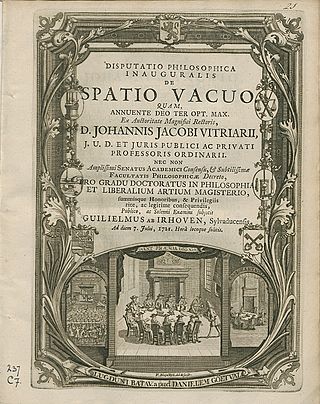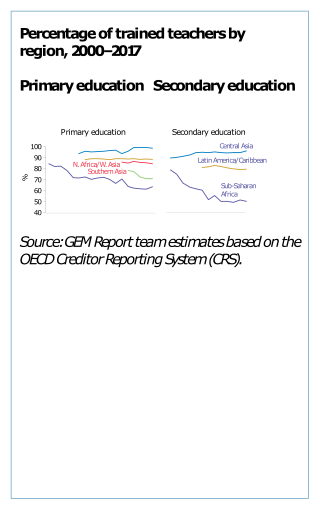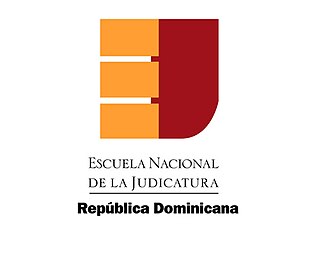Related Research Articles

A psychologist is a professional who practices psychology and studies mental states, perceptual, cognitive, emotional, and social processes and behavior. Their work often involves the experimentation, observation, and interpretation of how individuals relate to each other and to their environments.

A thesis, or dissertation, is a document submitted in support of candidature for an academic degree or professional qualification presenting the author's research and findings. In some contexts, the word thesis or a cognate is used for part of a bachelor's or master's course, while dissertation is normally applied to a doctorate. This is the typical arrangement in American English. In other contexts, such as within most institutions of the United Kingdom and Republic of Ireland, the reverse is true. The term graduate thesis is sometimes used to refer to both master's theses and doctoral dissertations.

Occupational therapy (OT) is a healthcare profession that involves the use of assessment and intervention to develop, recover, or maintain the meaningful activities, or occupations, of individuals, groups, or communities. The field of OT consists of health care practitioners trained and educated to improve mental and physical performance. Occupational therapists specialize in teaching, educating, and supporting participation in any activity that occupies an individual's time. It is an independent health profession sometimes categorized as an allied health profession and consists of occupational therapists (OTs) and occupational therapy assistants (OTAs). While OTs and OTAs have different roles, they both work with people who want to improve their mental and or physical health, disabilities, injuries, or impairments.
School psychology is a field that applies principles from educational psychology, developmental psychology, clinical psychology, community psychology, and behavior analysis to meet the learning and behavioral health needs of children and adolescents. It is an area of applied psychology practiced by a school psychologist. They often collaborate with educators, families, school leaders, community members, and other professionals to create safe and supportive school environments.
Clinical psychology is an integration of human science, behavioral science, theory, and clinical knowledge for the purpose of understanding, preventing, and relieving psychologically-based distress or dysfunction and to promote subjective well-being and personal development. Central to its practice are psychological assessment, clinical formulation, and psychotherapy, although clinical psychologists also engage in research, teaching, consultation, forensic testimony, and program development and administration. In many countries, clinical psychology is a regulated mental health profession.
An online community of practice (OCoP), also known as a virtual community of practice (VCoP), is a community of practice (CoP) that is developed on, and is maintained using the Internet. To qualify as an OCoP, the characteristics of a community of practice (CoP) as described by Lave and Wenger must be met. To this end, an OCoP must include active members who are practitioners, or "experts," in the specific domain of interest. Members must participate in a process of collective learning within their domain. Additionally, social structures must be created within the community to assist in knowledge creation and sharing. Knowledge must be shared and meaning negotiated within an appropriate context. Community members must learn through both instruction-based learning and group discourse. Finally, multiple dimensions must facilitate the long-term management of support as well as enable immediate synchronous interactions.
The Doctor of Public Administration (D.P.A.) is a terminal applied-research doctoral degree in the field of public administration (a part of public service). The D.P.A. requires significant coursework beyond the masters level and a dissertation that contributes to theory or practice. Upon successful completion, the title of "Doctor" is awarded and the post-nominal letters of D.P.A. or DPA can be used.
A terminal degree is the highest-level college degree that can be achieved and awarded in an academic discipline or professional field. In other cases, it is a degree that is awarded because a doctoral-level degree is not available nor appropriate.
An advanced practice nurse (APN) is a nurse with post-graduate education and training in nursing. Nurses practicing at this level may work in either a specialist or generalist capacity. APNs are prepared with advanced didactic and clinical education, knowledge, skills, and scope of practice in nursing.

Teacher education or teacher training refers to programs, policies, procedures, and provision designed to equip (prospective) teachers with the knowledge, attitudes, behaviors, approaches, methodologies and skills they require to perform their tasks effectively in the classroom, school, and wider community. The professionals who engage in training the prospective teachers are called teacher educators.
Advance HE is a British charity and professional membership scheme promoting excellence in higher education. It advocates evidence-based teaching methods and awards fellowships as professional recognition for university teachers. Founded in 2003, the Higher Education Academy was responsible for the UK Professional Standards Framework for higher education practitioners and merged to form Advance HE on 21 March 2018.
An essay mill is a business that allows customers to commission an original piece of writing on a particular topic so that they may commit academic fraud. Customers provide the company with specific information about the essay, including number of pages, general topic, and a time frame to work within. The customer is charged a certain amount per page. A similar concept is the essay bank, a company from which students can purchase prewritten but less expensive essays on various topics, at higher risk of being caught. Both forms of business are under varying legal restraints in some jurisdictions.
The scientist–practitioner model, also called the Boulder Model, is a training model for graduate programs that provide applied psychologists with a foundation in research and scientific practice. It was initially developed to guide clinical psychology graduate programs accredited by the American Psychological Association (APA).
Therapeutic jurisprudence (TJ) is an interdisciplinary approach to legal scholarship with the goal of reforming the law so it has a positive impact on the well-being of defendants appearing in court. TJ researchers and practitioners typically make use of social science methods to explore ways in which negative consequences can be reduced, and therapeutic consequences enhanced, without breaching due process requirements. By taking a non-adversarial approach to the administration of justice, judges and lawyers work together to create strategies that help offenders make positive changes in their own lives. Therapeutic jurisprudence has been used successfully in mental health courts and other problem-solving courts, such as drug courts for defendants with addictions.
A mental health professional is a health care practitioner or social and human services provider who offers services for the purpose of improving an individual's mental health or to treat mental disorders. This broad category was developed as a name for community personnel who worked in the new community mental health agencies begun in the 1970s to assist individuals moving from state hospitals, to prevent admissions, and to provide support in homes, jobs, education, and community. These individuals were the forefront brigade to develop the community programs, which today may be referred to by names such as supported housing, psychiatric rehabilitation, supported or transitional employment, sheltered workshops, supported education, daily living skills, affirmative industries, dual diagnosis treatment, individual and family psychoeducation, adult day care, foster care, family services and mental health counseling.

Participatory rural appraisal (PRA) is an approach used by non-governmental organizations (NGOs) and other agencies involved in international development. The approach aims to incorporate the knowledge and opinions of rural people in the planning and management of development projects and programmes.

Open educational practices (OEP) are part of the broader open education landscape, including the openness movement in general. It is a term with multiple layers and dimensions and is often used interchangeably with open pedagogy or open practices. OEP represent teaching and learning techniques that draw upon open and participatory technologies and high-quality open educational resources (OER) in order to facilitate collaborative and flexible learning. Because OEP emerged from the study of OER, there is a strong connection between the two concepts. OEP, for example, often, but not always, involve the application of OER to the teaching and learning process. Open educational practices aim to take the focus beyond building further access to OER and consider how in practice, such resources support education and promote quality and innovation in teaching and learning. The focus in OEP is on reproduction/understanding, connecting information, application, competence, and responsibility rather than the availability of good resources. OEP is a broad concept which can be characterised by a range of collaborative pedagogical practices that include the use, reuse, and creation of OER and that often employ social and participatory technologies for interaction, peer-learning, knowledge creation and sharing, empowerment of learners, and open sharing of teaching practices.

The National Judicial College(ENJ in Spanish) is the body that is responsible for training and ongoing formation of all servers in the Dominican Judiciary. As an educational institution is recognized by the National Council of Higher Education as a Specialized Institute of Higher Studies.
The Doctor of Criminal Justice (D.C.J.) is a doctoral degree in the field of criminal justice. As a terminal degree, it prepares the holder for administrative, research, academic or professional positions in the criminal justice field at both public and private institutions.
References
- ↑ "Worldwide Words". Archived from the original on 20 July 2009.
- ↑ "Sustaining Lives in Despair: A Pracademic Approach to the Pandemic", Jon Van Til (unpublished).
- ↑ "Article" (PDF).
- ↑ "Pracademic Newsletter". Archived from the original on 28 August 2008. Retrieved 8 February 2009.
- ↑ Maria R Volpe and David Chandler, Resolving and Managing conflicts in Academic Communities: The Emerging Role of the "Pracademic", Negotiation Journal, Vol 17 Iss 3, P245-255, 2001, Wiley InterScience
- ↑ Willard T. Price, A Pracademic Research Agenda for Public Infrastructure, Public Works Management & Policy, Vol. 5, No. 4, 287-296 (2001), Sage
- ↑ George L. Hanbury, A “Pracademic’s” Perspective of Ethics and Honor: Imperatives for Public Service in the 21st Century!, Public Organization Review, Volume 4, Number 3, September 2004 , pp. 187-204, Springer
- ↑ "Pracademic Degree". Archived from the original on 22 September 2008.
- ↑ James, Ross W. (17 July 2000). The transitional learning model: a handbook for training design : with special application to cross-cultural training. Vocational Education & Training Publications. ISBN 9780957764316 – via Google Books.
- ↑ "Health Communication Resources". Health Communication Resources.
- ↑ "ICPEM | Institute of Civil Protection and Emergency Management | Document links". Archived from the original on 23 July 2011. Retrieved 25 June 2009.
- ↑ Jain, R. (2013) Practitioner Research as Dissertation: Exploring the Continuities between Practice and Research in a Community College ESL Classroom. Ph.D. Dissertation, University of Maryland, College Park. Retrieved from http://hdl.handle.net/1903/14515.
- Morreale, S. A. and McCabe, J. E., The “Pracademic” in Criminal Justice Education, ACJS Now, Volume 6, Issue 2, January 2012.